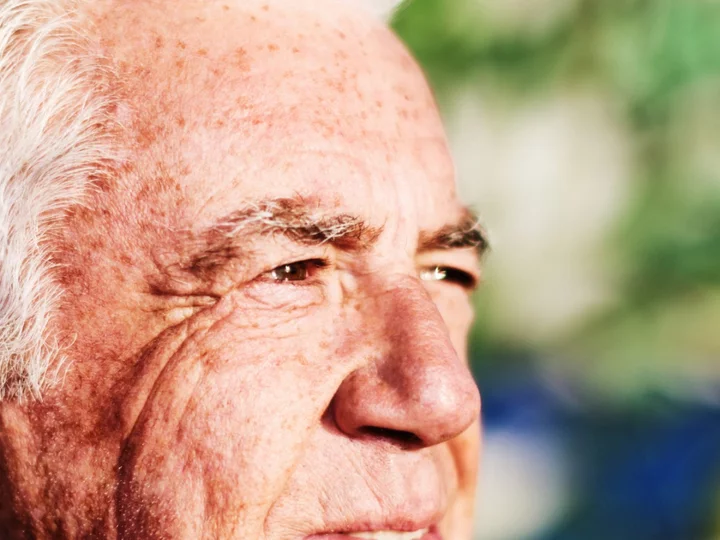During my junior year of high school, I began struggling with invasive, destructive thoughts. I was clinically depressed, and as a teenager, I had no idea how to manage these troubling apprehensions and emotions. My psychiatrist at the time prescribed me Lexapro and Adderall, the former to help with my anxiety and depression and the latter for my newly diagnosed ADHD. At the time, being so young, it was difficult for me to grasp the idea of medication. I wondered why I needed it to function and why other people didn’t. Nonetheless, I spent the next six years taking these psychiatric medications, and this treatment helped me to start living fully again.
About a decade later, I feel so affirmed seeing an influx of Latines talking openly about the need to prioritize our mental health and removing the shame from something that was once so confusing and isolating for me. Groups like Latinx Therapy have been destigmatizing mental health within Latine communities and built a directory of Latine therapists that offer services in English and Spanish. Others like Latinx Parenting explore intergenerational healing, so that our gente old and young can break free from the cycles of historical trauma. And on TikTok, young Latines openly discuss their mental health journeys.
Gone are the days when “ponte a limpiar” or “stop being lazy” are acceptable responses to conversations around depression. As a collective, Latines are unlearning the shame and ignorance around mental health we were raised with and reprogramming ourselves to live mentally healthful and sustainable lives. Yet somehow, there remains hesitance and stigma around meds.
“Latines are unlearning the shame and ignorance around mental health we were raised with and reprogramming ourselves to live mentally healthful and sustainable lives. Yet somehow, there remains hesitance and stigma around meds.”
brenda barrientos“Some people feel taking medication indicates a personal failure or that they are weak, and that just isn’t true,” New York-based psychiatrist Sharon Batista, MD, tells Refinery29 Somos. “We have yet to fully understand why some people get sick and others don’t, but studies show that most psychiatric illnesses are over 50% genetic. It has nothing to do with how strong or determined a person is.”
In the past, Latines have generally considered talk therapy to be something for so-called “locas.” While many in our communities have unlearned this faulty, and very ableist, thinking around mental health counseling, Batista says these ideas still linger when it comes to mental health medication. “Many people that I know will say, ‘Well, I’m not crazy.’ And that’s a part of our culture, unfortunately, that I still encounter all the time. There’s a lot of ways that people suffer that don’t have anything to do with being ‘crazy.’ This is real human suffering.”
To be fair, not all of the hesitance around psychiatric medication is rooted in internalized shame. For some, it stems from a valid distrust in the medical industry. Historically, our healthcare system has failed Latine communities, especially when it comes to misdiagnoses and wrongful prescriptions rooted in cultural misconceptions, language barriers, and, well, racism.
“Some people feel taking medication indicates a personal failure or that they are weak, and that just isn’t true.”
Sharon Batista, MDBut the truth is that our communities are suffering. According to a study by the American Psychiatric Association, suicidal thoughts are rising among Latine adults. In fact, 8.6% of Latines between the ages of 18 and 25 had serious thoughts of suicide in 2018, compared to 7% in 2008. Major depressive episodes are also on the rise, increasing from 8% to 12% among Latine adults in the same age range between 2015 and 2018. These instances have escalated since the Covid-19 pandemic. A study published in the Journal of Racial and Ethnic Health Disparities in 2022 reported that the percentage of Latines who had considered suicide amid the first year of the pandemic was significantly higher compared to the population as a whole, with 18.6% of Latines saying they contemplated it. Even more, Latines reported higher rates of depression compared to non-Latine whites.
“For some, it is very serious conditions that affect someone’s quality of life and their function in this world. And can even be life-threatening,” Batista says. “In our culture, it is treated as if it’s a more superficial problem than what it really is. And that’s one of the things that we’re really trying to fight. I’d like to think we have come a long way as a society and we don’t blame people for being diabetic and needing insulin, so why would we blame someone for being depressed?”
As a psychiatrist, Batista mostly provides talk therapy with her clients. But when she notices that someone is suffering and not making adequate progress, then she will bring up meds, working with the client to come up with a plan that they feel comfortable with. “Not all mental health conditions are chronic or progressive,” she adds, noting that getting on medication doesn’t mean you’ll need it for the rest of your life. “If it’s been a more complicated recovery, or there’s other stressors, … you might say, ‘let’s be a lot more cautious and encourage someone to stay on the medication longer, maybe not forever, but longer to keep that stability in place.’ Because it’s more important to keep you functioning well in your life and have a good quality of life than risk recurrence. It’s based on each individual.”
“In our culture, it is treated as if it’s a more superficial problem than what it really is. And that’s one of the things that we’re really trying to fight.”
SHARON BATISTA, MDI was on psychiatric medication for six years before I decided to get off. At the time, I felt much happier, healthier, and stronger. So far, I’ve been doing well. But if there ever comes a time when I feel like I’d need medication again, I wouldn’t hesitate. Those meds saved my life. And it has for a lot of people. Here, we speak with Latines who are on mental health medication about their experience with stigma, being on prescribed drugs, and living with mental health conditions.
Carlos Montoya, Salvadoran American
Growing up, I watched my mom struggle with her mental health. I knew what it looked like to be anxious and depressed. Yet last year, when I began experiencing these conditions myself, I totally missed it. Finally, in October of 2022, my sisters told me that I was not acting like myself and helped me get my first appointment with my doctor and my psychiatrist. I’m so grateful for them. Since then, I’ve been diagnosed with depression and anxiety, and have been working with a therapist while on 20 mg of Lexapro.
Looking back at where I was six months ago, it’s incredible to see my journey. I’m feeling good. I’m happy. And I’m much more motivated. Part of it is because of the medication, but, really, it’s also talking with my therapist and my own internal strength. I’m using what I’m learning in therapy to navigate everyday situations that would have typically given me anxiety.
In some ways, being proactive and taking care of my mental health is part of my family’s legacy. My mom was the first one in her family to break the cycle of untreated mental health conditions. Throughout her life, Mami watched her mother struggle with depression and never receive care. So when my mom did start seeing a mental health professional, there was some judgment from her family, even some ostracization. But I’m very happy to be the descendant of someone who didn’t let those cultural ideas or conservative ideals stop her from getting the care she knew she needed. Because of her, it has been so much easier for me and my sisters to prioritize our mental health, too.
Kimberly Lopez, Peruvian
In my household, discussing my mental and emotional health was taboo. If I ever felt any extreme emotion, my loved ones taught me that I was able to will it away. All I had to do was tell myself to stop feeling it, and it would magically disappear. And if it didn’t, which was often the case, I was told it was because I didn’t talk to myself sternly enough, or I was being terca and wanted to feel anxious.
As an adult, I can now recognize how harmful these messages are and how these misconceptions have sustained intergenerational trauma in my family. But I’m breaking free. Three years ago, I started seeing a therapist related to my anxiety. Recently, I felt my progress had come to a standstill and mentioned being open to medication. My therapist agreed with my decision, so I met with my primary care doctor who prescribed Lexapro for my general anxiety disorder.
I’ve only been taking Lexapro for three weeks, but I feel my anxiety easing. It’s no longer debilitating. I don’t believe the pill is going to fully “cure” my anxiety, but it adds to the work I’ve already been doing to effectively combat it. Honestly, I think I took much longer than I needed to start. Maybe it was my own internalized stigma, but I wanted to prove to myself that I could combat my anxiety without more help. Now, I wish I would have gone this route sooner. Of course, I still continue working with my therapist so I can control it on my own in the future. I don’t plan on being on Lexapro forever.
I haven’t talked to my family about being on medication yet. It’s a delicate conversation due to their preconceived notions about it. But I’ll get there. I’ve become very vocal about therapy. At first, they weren’t comfortable hearing me talk about my therapy sessions. But now, since I’ve been so outspoken about it, they are used to it and even ask me about it. My mom asks me how therapy is going and what my therapist says about certain things in my life. They have definitely come around and have started to embrace the idea. Once I get used to being on medication, and really accept it for myself, I know I’ll start talking with them about it, too.
Angela Bonilla, Puerto Rican
Ever since I could remember, I’ve struggled with my mental health — really. One of my earliest memories is from when I was in kindergarden. My family and I had just moved from Puerto Rico to the contiguous United States, and I was so overwhelmed with emotions that I didn’t know how to handle or articulate that I ended up just cutting my hair. My anxiety and depression continued to escalate in middle school, where I was bullied, and throughout high school and college.
Before starting college, I was opposed to medication. I thought I would get addicted. But, in time, I decided that it was something worth trying. It’s been a journey, to say the least. I started Zoloft for my anxiety and depression while in school. I had really bad side effects, including suicidal thoughts. Currently, I’m on different medications, one for my anxiety and one for my depression. These meds are effective, but I’m working toward getting to a dose that I feel comfortable with. When I was on a higher dose, I felt like a zombie. That’s the thing about mental health medication: It’s trial and error. Sometimes it’s been bad, and other times it’s been good.
I think something that most people don’t know about medication is that you can tell your psychiatrist that you don’t want to be on it. You have a choice. I’ve tried so many things that I found that work for me and others that have not. I’ve learned that it matters to listen to your body when it comes to medication. I always like to tell people that each of our bodies and minds are different, so their reaction to medication could be different from mine, and what works for me may or may not work for you.









